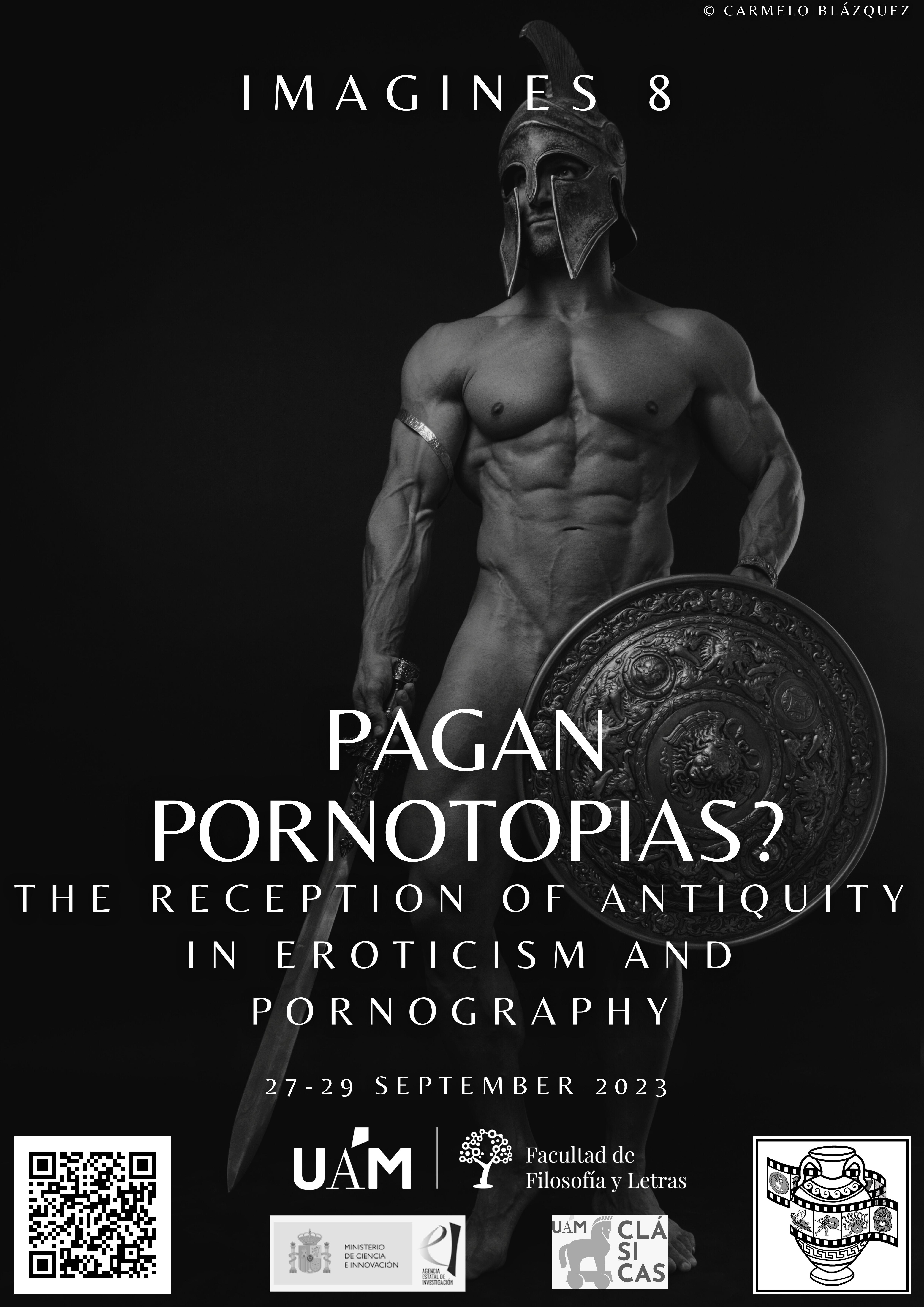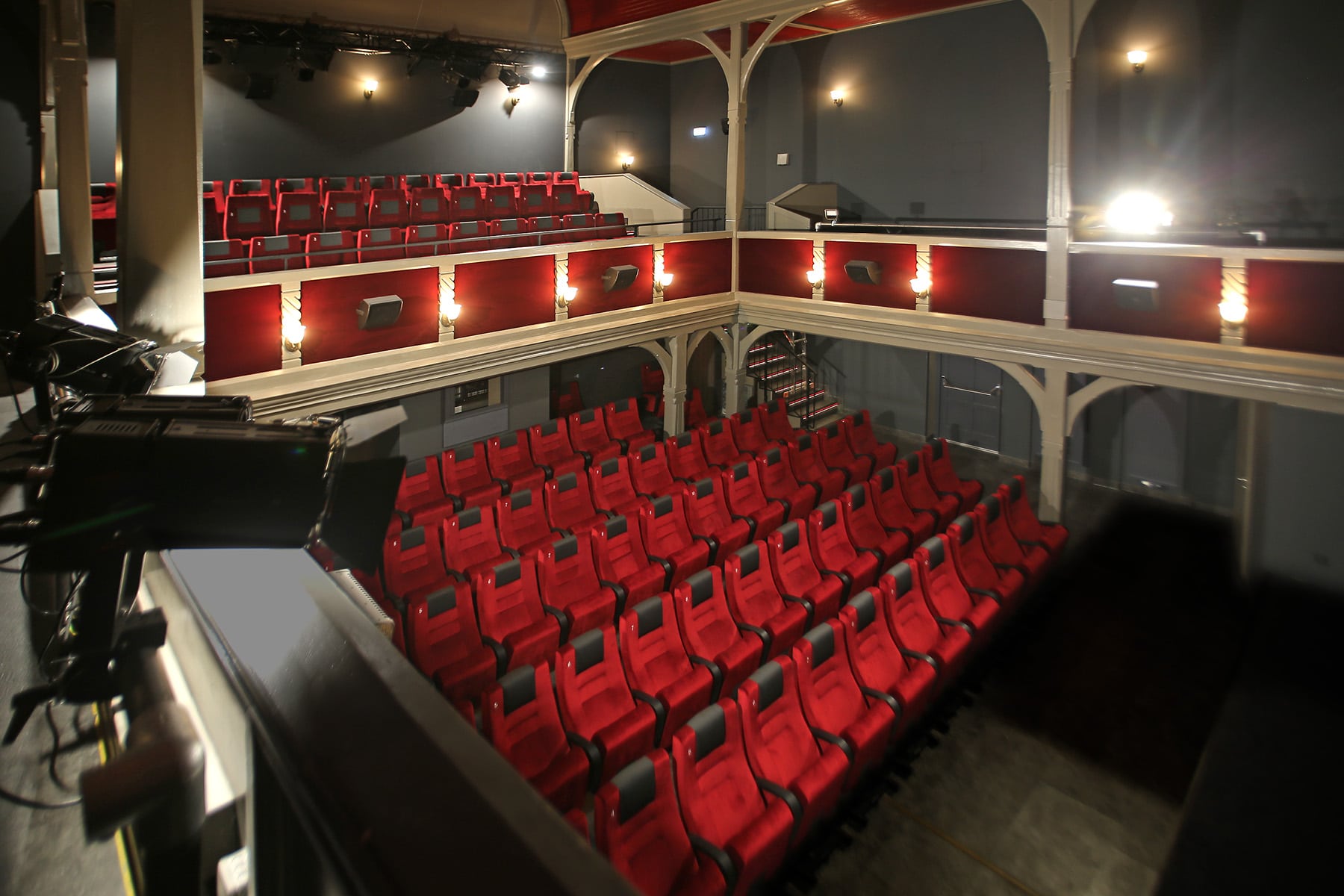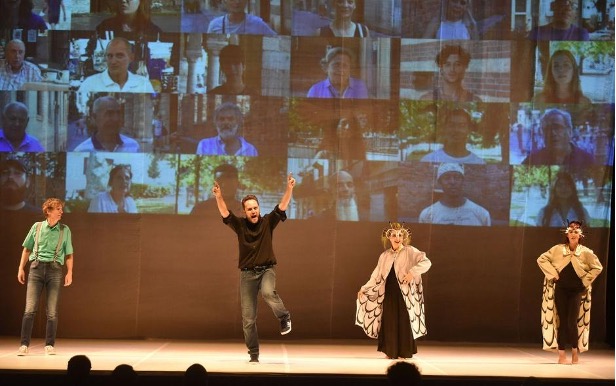Dr Martina Treu, Imagines Coordinator
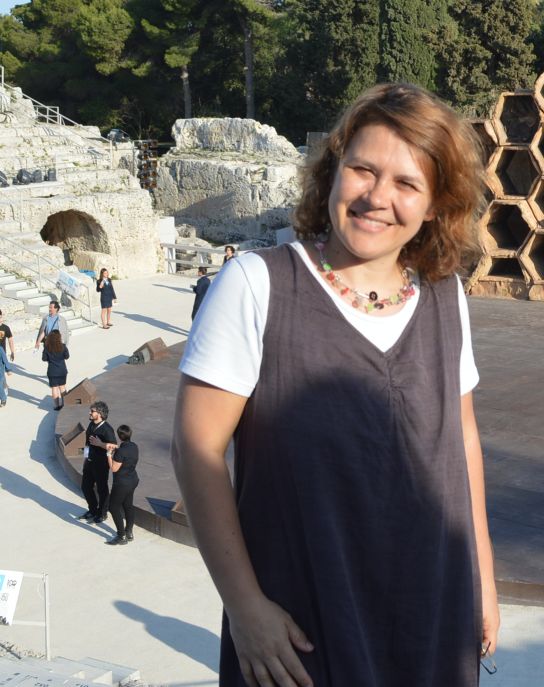 Martina Treu is Senior Assistant Professor in Greek Language and Literature at IULM University (Milan, Italy) since 2008, and she is coordinator and speaker of the Imagines Project since 2016. She is also founder and member of CRIMTA – University of Pavia. She graduated at Pavia University and she completed her PhD in Classical Philology at Padova University. She achieved the periodic National Examination as Associate Professor in Greek Language and Literature, Classical Philology and History of Greek and Roman Theatre.
Martina Treu is Senior Assistant Professor in Greek Language and Literature at IULM University (Milan, Italy) since 2008, and she is coordinator and speaker of the Imagines Project since 2016. She is also founder and member of CRIMTA – University of Pavia. She graduated at Pavia University and she completed her PhD in Classical Philology at Padova University. She achieved the periodic National Examination as Associate Professor in Greek Language and Literature, Classical Philology and History of Greek and Roman Theatre.
Her main research area is classical reception, adaptation and performance of Greek Drama. She has been Visiting Assistant Professor in Drama at the University of Venice and at the Catholic University, Brescia. She has worked in many Italian and European theatres and cooperated to a few adaptations of classical texts for the stage.
Among her publications are: Undici cori comici, Genova 1999; Cosmopolitico, Milano 2005; La Mitologia a test, Milano 2008; La mythologie, Paris, 2009; Il teatro antico nel Novecento, Roma 2009; Emilio Isgrò, L’Orestea di Gibellina e gli altri testi per il teatro, ed.by M. Treu, Firenze, 2011; Ajax, in Brill’s Companion to the Reception of Sophocles, ed. by R. Lauriola and K. Demetriou, Leiden / Boston 2017: 27-76; Ulysses’ Journey and Homer’s Odyssey, an eternal return, in The Eternal Return: Myth Updating in Contemporary Literature, ed.by A. González-Rivas –A. Lipscomb, JCLA, Journal of Comparative Literature and Aesthetics, issue 40.2, 2017: 103-122; Classics “the “Italian Way” a Long-Standing Paradox, in Echoing Voices in Italian Literature: Tradition and Translation in the 20th Century , ed. by T. Franco and C. Piantanida, Cambridge Scholar Press, 2018: 100-119; La Platea del Consenso, Stratagemmi. Prospettive teatrali, n. 38-39 (2/2018-1/2019), ed.by M. Treu: 97-112; “Erase and Rewrite. Ancient Texts, Modern Palimpsests”, in Skenè. Journal of Theatre and Drama studies, vol.5 n.2 (2019): 176-201; A lezione di regia teatrale. Conoscere lo spettacolo teatrale attraverso il racconto degli allestimenti, Issues 2-4, Milano, 2021-2022, Contemporaneo classico. Dialoghi tra antico e moderno nel nuovo Millennio, Milano 2022; Metamorfosi del trauma e violenza tragica, in Altre Modernità, ed. by R. Boccali, M. Treu, L. Scarabelli, E. Perassi, 2022: 65-81 (Open Access); Incense on the grass. A ‘strongly perfumed’ Libation Bearers (1999), in The Smells and Senses of Antiquity in the Modern Imagination: The Fragrant and the Foul, ed. by A. Grand-Clément and C. Ribeyrol, Imagines Series, Bloomsbury, 2022: 224-242; Tras las huellas de los sátiros: híbridos en la escena, in En los márgenes del mito. Hibridaciones del mito griego en la cultura de masas contemporánea, ed. by L. Unceta Gómez & H. González Vaquerizo, Catarata/Ediciones de la UAM, 2022: 105-128; Non solo Orfeo: Buzzati e i classici, in Dino Buzzati e la parola. Forme e linguaggio, ed by Silvia T. Zangrandi, Pisa-Roma, Serra editore, 2022: 189-199; Eschilo in Sicilia: l’Agamènnuni di Isgrò - Pirrotta (1983-2021), in Agamennone Classico e contemporaneo, ed. by Alessandro Iannucci, Francesco Citti, Antonio Ziosi, Collana “Lexis - Supplementi” Venezia, Edizioni Ca’ Foscari, 2022: 243-254 (Open Access); I teatri di Milano e la memoria ritrovata, in Milano tra memoria e ricordo, identità e immaginario, distruzione e ricostruzione, ed. by P. Giovannetti and S. Moretti, Milano-Udine, Mimesis Edizioni, 2022 (Ricerche IULM. Comunicazione, arti e media, 12), pp.133-159; “Un battito di ciglia. La bellezza come antidoto alla guerra”, in Quaderni camilleriani/19. Fìmmine (…ci vogliono occhi per taliarle), ed.by M. Deriu, Cagliari, Grafiche Ghiani, 2023, pp.62-83 (Open Access).
Contact: Email: This email address is being protected from spambots. You need JavaScript enabled to view it.; This email address is being protected from spambots. You need JavaScript enabled to view it.
Dr Anastasia Bakogianni
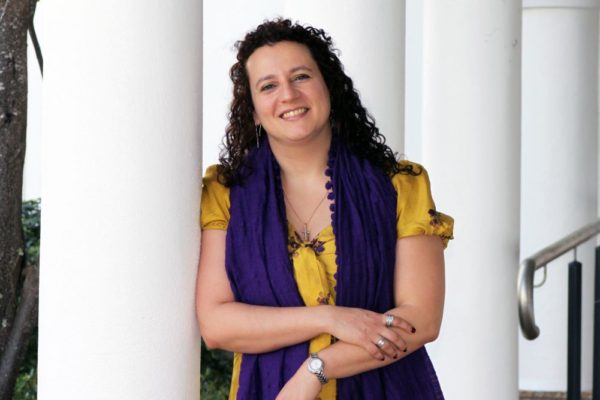 Dr Anastasia Bakogianni is Senior Lecturer in Classical Studies at Massey University in New Zealand. She received her PhD from the University of London (2004) and worked as a Research Fellow at the Institute of Classical Studies of the School of Advanced Studies, University of London (2005-9). She returned to the Institute as a Research Associate (2013-15). In between she held a two-year British Academy post-doc fellowship at The Open University, followed by a fixed-term lectureship and taught Classics at several universities. Her book Electra Ancient and Modern: Aspects of the Reception of the Tragic Heroine (2012) examined Electra’s portrayal in Greek tragedy and established the importance of mourning as a key strand in her many post-classical metamorphoses. Dr Bakogianni is also the editor of the following collections: Dialogues with the Past: Reception Theory and Practice (2013), War as Spectacle: Ancient and Modern Perspective on the Display of Armed Conflict: Ancient and Modern Perspective on the Display of Armed Conflict (co-edited with V. M. Hope, 2015), Locating Classical Receptions on Screen: Masks, Echoes, Shadows (co-edited with R. Apostol, 2018), Ancient Greek and Roman Multi-Sensory Spectacles of Grief (journal issue: thersites 9, 2019. OpenAccess), Classical Reception: New Challenges in a Changing World (co-edited with L. Unceta Gómez. See book trailer here).
Dr Anastasia Bakogianni is Senior Lecturer in Classical Studies at Massey University in New Zealand. She received her PhD from the University of London (2004) and worked as a Research Fellow at the Institute of Classical Studies of the School of Advanced Studies, University of London (2005-9). She returned to the Institute as a Research Associate (2013-15). In between she held a two-year British Academy post-doc fellowship at The Open University, followed by a fixed-term lectureship and taught Classics at several universities. Her book Electra Ancient and Modern: Aspects of the Reception of the Tragic Heroine (2012) examined Electra’s portrayal in Greek tragedy and established the importance of mourning as a key strand in her many post-classical metamorphoses. Dr Bakogianni is also the editor of the following collections: Dialogues with the Past: Reception Theory and Practice (2013), War as Spectacle: Ancient and Modern Perspective on the Display of Armed Conflict: Ancient and Modern Perspective on the Display of Armed Conflict (co-edited with V. M. Hope, 2015), Locating Classical Receptions on Screen: Masks, Echoes, Shadows (co-edited with R. Apostol, 2018), Ancient Greek and Roman Multi-Sensory Spectacles of Grief (journal issue: thersites 9, 2019. OpenAccess), Classical Reception: New Challenges in a Changing World (co-edited with L. Unceta Gómez. See book trailer here).
Contact: This email address is being protected from spambots. You need JavaScript enabled to view it.
Dr Irene Berti
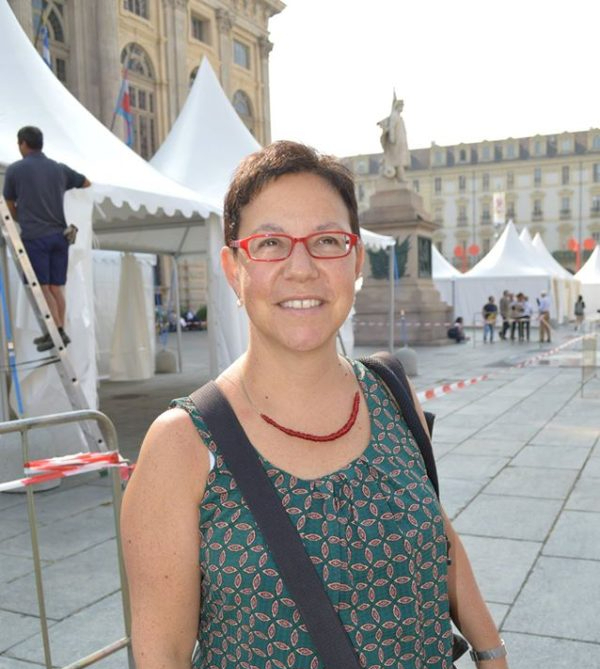 Irene Berti is lecturer at the Pädagogische Hochschule Heidelberg. After her studies of Classical Archaeology, Classical Philology and Ancient History in Rome, Athens and Heidelberg, she has been foreign expert for Greek History and Faculty member at the University of Changchun (China), lecturer in Heidelberg and in Gießen and held postdoc positions in Heidelberg and in Torino, where she worked on epigraphic projects. Her main research interests are Greek religion and mythology, ancient technology and reception of ancient myths. Together with Marta Garcia Morcillo she published Hellas on screen (Steiner Verlag 2008). She is also co-editor (with Filippo Carla) of Ancient Magic and the Supernatural in the Modern Visual and Performing Arts (Imagines Series, Bloomsbury 2015), and of Ancient Violence in the Modern Imagination: The Fear and the Fury (Imagines Series, Bloomsbury, paperback 2022) (with Carla Scilabra and Maria-Goretti Castello). Since 2008 she is an enthusiastic member of the imagines-Project.
Irene Berti is lecturer at the Pädagogische Hochschule Heidelberg. After her studies of Classical Archaeology, Classical Philology and Ancient History in Rome, Athens and Heidelberg, she has been foreign expert for Greek History and Faculty member at the University of Changchun (China), lecturer in Heidelberg and in Gießen and held postdoc positions in Heidelberg and in Torino, where she worked on epigraphic projects. Her main research interests are Greek religion and mythology, ancient technology and reception of ancient myths. Together with Marta Garcia Morcillo she published Hellas on screen (Steiner Verlag 2008). She is also co-editor (with Filippo Carla) of Ancient Magic and the Supernatural in the Modern Visual and Performing Arts (Imagines Series, Bloomsbury 2015), and of Ancient Violence in the Modern Imagination: The Fear and the Fury (Imagines Series, Bloomsbury, paperback 2022) (with Carla Scilabra and Maria-Goretti Castello). Since 2008 she is an enthusiastic member of the imagines-Project.
Contact: This email address is being protected from spambots. You need JavaScript enabled to view it.
Prof. Dr. Filippo Carlà-Uhink
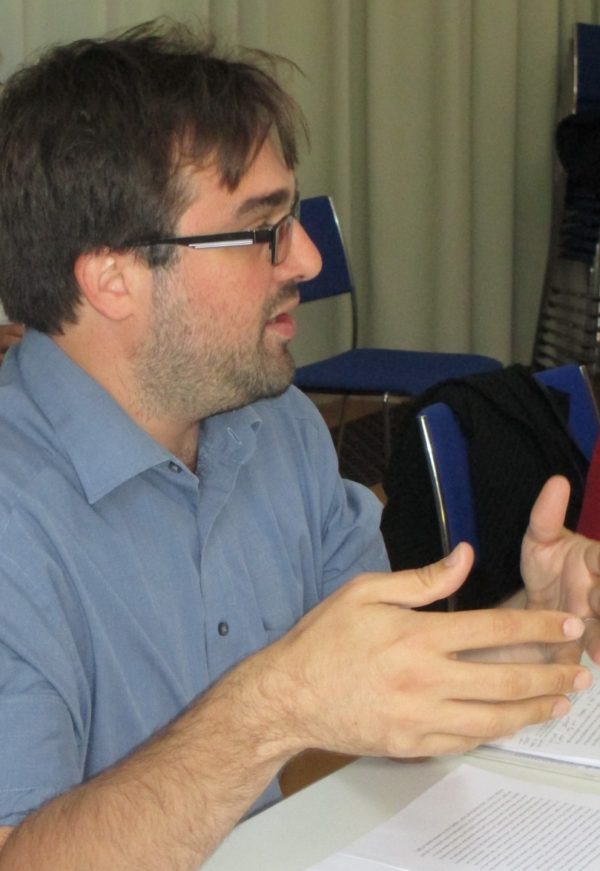 Filippo Carlà-Uhink is Professor for Ancient History at the University of Potsdam in Germany. He received his PhD from the University of Udine, Italy in 2007 and worked at the Universities of Heidelberg, Mainz, Exeter and at the University of Education Heidelberg before being appointed to Potsdam in 2018. In 2012, he organized together with Irene Berti in Mainz the third international Imagines conference, “Magic and the Supernatural from the Ancient World” (which became in 2015 a collective volume for Bloomsbury); in 2014 he edited a collective volume on the reception of classical Antiquity in European comics (Caesar, Attila & Co., Von Zabern, Darmstadt 2014). He is one of the editors of the open access journal thersites (in which he co-edited with Marta García Morcillo and Christine Walde in 2017 a monographic number on Advertising Antiquity), and together with Martin Lindner editor of the Imagines series for Bloomsbury. He has published many articles and book chapters on the reception of Classical Antiquity, especially in the modern popular culture and in modern political discourses. He is the author of the monograph Representations of Classical Greece in Theme Parks (Imagines series, Bloomsbury 2020), and he edited, with Anja Wieber, the collective volume Orientalism and the Reception of Powerful Women from the Ancient World (Imagines series, Bloomsbury 2020). He is the organizer, together with Luis Unceta Gómez, of the eighth international Imagines conference, Pagan Pornotopias (Madrid 2023). In July 2023, he organised the workshop Greek and Roman Antiquity for Children and Young Adults at the Universität Potsdam.
Filippo Carlà-Uhink is Professor for Ancient History at the University of Potsdam in Germany. He received his PhD from the University of Udine, Italy in 2007 and worked at the Universities of Heidelberg, Mainz, Exeter and at the University of Education Heidelberg before being appointed to Potsdam in 2018. In 2012, he organized together with Irene Berti in Mainz the third international Imagines conference, “Magic and the Supernatural from the Ancient World” (which became in 2015 a collective volume for Bloomsbury); in 2014 he edited a collective volume on the reception of classical Antiquity in European comics (Caesar, Attila & Co., Von Zabern, Darmstadt 2014). He is one of the editors of the open access journal thersites (in which he co-edited with Marta García Morcillo and Christine Walde in 2017 a monographic number on Advertising Antiquity), and together with Martin Lindner editor of the Imagines series for Bloomsbury. He has published many articles and book chapters on the reception of Classical Antiquity, especially in the modern popular culture and in modern political discourses. He is the author of the monograph Representations of Classical Greece in Theme Parks (Imagines series, Bloomsbury 2020), and he edited, with Anja Wieber, the collective volume Orientalism and the Reception of Powerful Women from the Ancient World (Imagines series, Bloomsbury 2020). He is the organizer, together with Luis Unceta Gómez, of the eighth international Imagines conference, Pagan Pornotopias (Madrid 2023). In July 2023, he organised the workshop Greek and Roman Antiquity for Children and Young Adults at the Universität Potsdam.
Contact: This email address is being protected from spambots. You need JavaScript enabled to view it.
Dr Jesús Carruesco
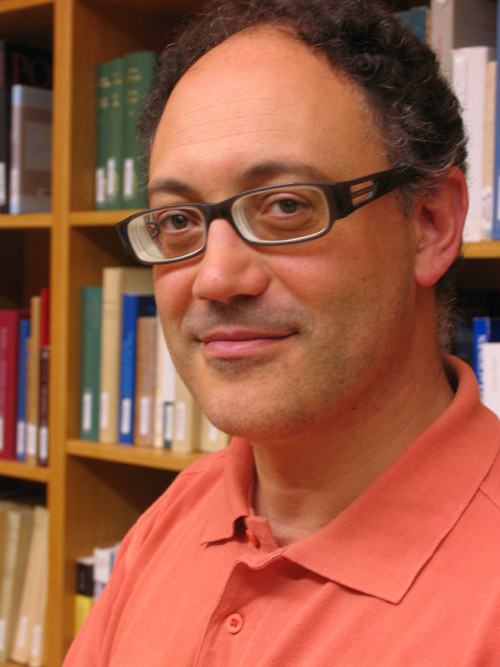 Jesús Carruesco is Profesor of Classical Philology at the University Rovira i Virgili (Tarragona), as well as senior researcher of the Catalan Institute of Classical Archaeology (ICAC). He is specialist in Greek Culture and Literature, particularly lyric, and iconography, as well as in ancient theatre and its modern receptions, including contemporary opera. Jesús leads currently the international Project Mechanisms of Representation of the Past and Dynamics of Performance in Ancient Greece (I+D FFI2015-68548-P) (2016-19). Previously, he was PI of the project The Articulation of Space in Ancient Greece and Egypt. His most recent publications include: Ancient Seas in Modern Opera: Sea Images and Mediterranean Myths in Rihm’s Dionysos, in: Rovira, C., Sailing in Troubled Waters, Bloomsbury, London 2017: 148-169 (with M. Reig); The Invention of Stesichorus: Hesiod, Helen, and the Muse, in: Bakker, E. (ed.), Authorship and Greek Song: Authority, Authenticity, and Performance, Mnemosyne Supplements, Brill, Leiden, Boston 2017: 178-196; Choral Performance and Geometric Patterns in Epic Poetry and Iconographic Representations, in: The Look of Lyric: Greek Song and the Visual, Mnemosyne, Supplements 391, Brill, Leiden 2016: 69-107; Medea, a Greek Sorceress in Modern Opera and Ballet: From Barber to Reimann, in: Carlà, F.; Berti, I. (eds.), Ancient Magic and the Supernatural in the Modern Visual and Performing Arts, Bloomsbury Studies in Classical Reception, Bloomsbury, London 2015: 93-102 (with M. Reig); and Redefining Catharsis in Opera: Myth and the Power of Music in Birtwistle’s The Minotaur and Amargós’ Eurídice y los títeres de Caronte, in: a Knippschild, S.; Garcia Morcillo, M. (eds.), Seduction and Power: Antiquity in the Visual and Performing Arts, Bloomsbury Academic, London-New York-New Delhi-Sydney 2013: 109-120 (with M. Reig).
Jesús Carruesco is Profesor of Classical Philology at the University Rovira i Virgili (Tarragona), as well as senior researcher of the Catalan Institute of Classical Archaeology (ICAC). He is specialist in Greek Culture and Literature, particularly lyric, and iconography, as well as in ancient theatre and its modern receptions, including contemporary opera. Jesús leads currently the international Project Mechanisms of Representation of the Past and Dynamics of Performance in Ancient Greece (I+D FFI2015-68548-P) (2016-19). Previously, he was PI of the project The Articulation of Space in Ancient Greece and Egypt. His most recent publications include: Ancient Seas in Modern Opera: Sea Images and Mediterranean Myths in Rihm’s Dionysos, in: Rovira, C., Sailing in Troubled Waters, Bloomsbury, London 2017: 148-169 (with M. Reig); The Invention of Stesichorus: Hesiod, Helen, and the Muse, in: Bakker, E. (ed.), Authorship and Greek Song: Authority, Authenticity, and Performance, Mnemosyne Supplements, Brill, Leiden, Boston 2017: 178-196; Choral Performance and Geometric Patterns in Epic Poetry and Iconographic Representations, in: The Look of Lyric: Greek Song and the Visual, Mnemosyne, Supplements 391, Brill, Leiden 2016: 69-107; Medea, a Greek Sorceress in Modern Opera and Ballet: From Barber to Reimann, in: Carlà, F.; Berti, I. (eds.), Ancient Magic and the Supernatural in the Modern Visual and Performing Arts, Bloomsbury Studies in Classical Reception, Bloomsbury, London 2015: 93-102 (with M. Reig); and Redefining Catharsis in Opera: Myth and the Power of Music in Birtwistle’s The Minotaur and Amargós’ Eurídice y los títeres de Caronte, in: a Knippschild, S.; Garcia Morcillo, M. (eds.), Seduction and Power: Antiquity in the Visual and Performing Arts, Bloomsbury Academic, London-New York-New Delhi-Sydney 2013: 109-120 (with M. Reig).
Contact: This email address is being protected from spambots. You need JavaScript enabled to view it.
Prof. Pepa Castillo Pascual
 Pepa Castillo Pascual is Professor for Ancient History at Universidad de la Rioja and Senior Fellow of the interdisciplinary project Topoi (The Formation and Transformation of Space and Knowledge in Ancient Civilizations). She studied ancient history and classics in Madrid and Vitoria. In 1993 she received a doctorate with a thesis on roman spatial planning from Universität Heidelberg and Universidad de la Rioja. Since then her research focuses on the study of roman spatial planning and gromatic works. Furthermore she investigates the history of Constantine the Great of whom she wrote a monography (2010). She is founder member of Imagines-Project and has extensively worked on the reception of antiquity in Baroque opera. Her Classical Reception contributions include the co-edition of the first Imagines volume, and the articles Claudia Quinta and Publius Cornelius Scipio Nassica: Exempla virtutis in Vienna under Leopold I (1675-1705), in: Silke Knippschild and Marta García Morcillo (eds.), Seduction and Power. The Antiquity in the Visual and Performing Arts, London: Bloomsbury 2013, 155-169; and Circe diva: The Reception of Circe in the Baroque Opera (XVII Century), in F. Carlà and I. Berti, Magic and the Supernatural in the Modern Visual and Performing Arts, Bloomsbury 2015.
Pepa Castillo Pascual is Professor for Ancient History at Universidad de la Rioja and Senior Fellow of the interdisciplinary project Topoi (The Formation and Transformation of Space and Knowledge in Ancient Civilizations). She studied ancient history and classics in Madrid and Vitoria. In 1993 she received a doctorate with a thesis on roman spatial planning from Universität Heidelberg and Universidad de la Rioja. Since then her research focuses on the study of roman spatial planning and gromatic works. Furthermore she investigates the history of Constantine the Great of whom she wrote a monography (2010). She is founder member of Imagines-Project and has extensively worked on the reception of antiquity in Baroque opera. Her Classical Reception contributions include the co-edition of the first Imagines volume, and the articles Claudia Quinta and Publius Cornelius Scipio Nassica: Exempla virtutis in Vienna under Leopold I (1675-1705), in: Silke Knippschild and Marta García Morcillo (eds.), Seduction and Power. The Antiquity in the Visual and Performing Arts, London: Bloomsbury 2013, 155-169; and Circe diva: The Reception of Circe in the Baroque Opera (XVII Century), in F. Carlà and I. Berti, Magic and the Supernatural in the Modern Visual and Performing Arts, Bloomsbury 2015.
Contact: This email address is being protected from spambots. You need JavaScript enabled to view it.
Prof. Antonio Duplá-Ansuategui
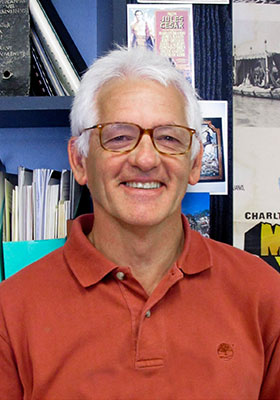 Antonio Duplá-Ansuategui is Professor of Ancient History at the University of the Basque Country (Vitoria-Gasteiz). His research focuses on two major areas, social conflicts and political violence in the Late Roman Republic and historiography and classical receptions. In this second field, he has worked on modern historiography (Mommsen, Marxism), Ancient Rome on screen, historical painting and in particular on classicism, fascism and Francoism. Some of his recent publications include: Augusto y el franquismo: ecos del Bimilenario de Augusto en España, Revista de historiografía 27, 2017; The image of Phoenicians and Carthaginians in Modern Spanish History and Culture, in R. Rovira (ed.), The Ancient Mediterranean Sea in Modern Visual and Performing Arts, Bloomsbury, 2018; with E. dell’Elicine and J. Pérez Mostazo (eds.), Antigüedad clásica y naciones modernas en el Viejo y el Nuevo Mundo, Madrid, Polifemo, 2018; Marco Antonio, un imperator venido a menos en la pantalla, in B. Antela-Bernárdez / J.Vidal (eds.), La guerra de la Antigüedad en el cine, Zaragoza, 2019; Ancient War and Modern Art: Some Remarks on Historical Painting from the Nineteenth and Twentieth Centuries, in I. Berti, Mª G. Castello, C. Scilabra (eds.), Ancient Violence in the Modern Imagination. The Fear and the Fury, Bloomsbury 2021; with A. Emborujo and O. Aguado (eds.), Del clasicismo de elite al clasicismo de masas, Madrid, Polifemo, (forthcoming). He is the PI of the project and network ANIHO: Antigüedad, nacionalismos e identidades complejas en la historiografía occidental.
Antonio Duplá-Ansuategui is Professor of Ancient History at the University of the Basque Country (Vitoria-Gasteiz). His research focuses on two major areas, social conflicts and political violence in the Late Roman Republic and historiography and classical receptions. In this second field, he has worked on modern historiography (Mommsen, Marxism), Ancient Rome on screen, historical painting and in particular on classicism, fascism and Francoism. Some of his recent publications include: Augusto y el franquismo: ecos del Bimilenario de Augusto en España, Revista de historiografía 27, 2017; The image of Phoenicians and Carthaginians in Modern Spanish History and Culture, in R. Rovira (ed.), The Ancient Mediterranean Sea in Modern Visual and Performing Arts, Bloomsbury, 2018; with E. dell’Elicine and J. Pérez Mostazo (eds.), Antigüedad clásica y naciones modernas en el Viejo y el Nuevo Mundo, Madrid, Polifemo, 2018; Marco Antonio, un imperator venido a menos en la pantalla, in B. Antela-Bernárdez / J.Vidal (eds.), La guerra de la Antigüedad en el cine, Zaragoza, 2019; Ancient War and Modern Art: Some Remarks on Historical Painting from the Nineteenth and Twentieth Centuries, in I. Berti, Mª G. Castello, C. Scilabra (eds.), Ancient Violence in the Modern Imagination. The Fear and the Fury, Bloomsbury 2021; with A. Emborujo and O. Aguado (eds.), Del clasicismo de elite al clasicismo de masas, Madrid, Polifemo, (forthcoming). He is the PI of the project and network ANIHO: Antigüedad, nacionalismos e identidades complejas en la historiografía occidental.
Contact: This email address is being protected from spambots. You need JavaScript enabled to view it.
Dr Adriana Freire Nogueira
 Adriana Freire Nogueira is Associate Professor (tenured) in Classical Languages, Literatures and Cultures of the Department of Arts and Humanities of the University of Algarve (Faro, Portugal). Adriana is a multifaceted author, specialised in Greek literature and culture, and with a special interest in the myth of Herakles, Thucydides and Plato. She has worked on translations of classical texts and is author of a series of children books based on the Adventures of Hercules, as well as of other fiction stories. Adriana was the organiser of Imagines IV: Sailing in Troubled Waters (2014) and keeps interested in the reception of Antiquity in the contemporary world. Her publications also include: “Hercules in Twenty-first-century Music” (Brill, 2024); “Metaforizações dos mitos cretenses na poesia de Ana Luísa Amaral: desafios didáticos” ("Metaphorisations of Cretan myths in Ana Luísa Amaral’s poetry: didactic challenges") (Coimbra, 2024); “Ecos da Antiguidade na Poesia Portuguesa Contemporânea: Ulisses Plurais – Memórias Míticas” (2022) (“Echoes of Antiquity in Portuguese Contemporary Poetry: Multiple Odysseus– Mythical Memories” (Coimbra, 2022); “A Antiguidade greco-latina na comunicação e na arte contemporâneas – O exemplo das ‘Três Graças’” (Campina Grande/PB - BR/ Faro - PT, 2019) (“Greco-Roman Antiquity in Communication and Contemporary Art”); “Monstros marinhos na mitologia e na arte” (Lisboa, 2018) (“Sea-monsters in Mythology and Art”).
Adriana Freire Nogueira is Associate Professor (tenured) in Classical Languages, Literatures and Cultures of the Department of Arts and Humanities of the University of Algarve (Faro, Portugal). Adriana is a multifaceted author, specialised in Greek literature and culture, and with a special interest in the myth of Herakles, Thucydides and Plato. She has worked on translations of classical texts and is author of a series of children books based on the Adventures of Hercules, as well as of other fiction stories. Adriana was the organiser of Imagines IV: Sailing in Troubled Waters (2014) and keeps interested in the reception of Antiquity in the contemporary world. Her publications also include: “Hercules in Twenty-first-century Music” (Brill, 2024); “Metaforizações dos mitos cretenses na poesia de Ana Luísa Amaral: desafios didáticos” ("Metaphorisations of Cretan myths in Ana Luísa Amaral’s poetry: didactic challenges") (Coimbra, 2024); “Ecos da Antiguidade na Poesia Portuguesa Contemporânea: Ulisses Plurais – Memórias Míticas” (2022) (“Echoes of Antiquity in Portuguese Contemporary Poetry: Multiple Odysseus– Mythical Memories” (Coimbra, 2022); “A Antiguidade greco-latina na comunicação e na arte contemporâneas – O exemplo das ‘Três Graças’” (Campina Grande/PB - BR/ Faro - PT, 2019) (“Greco-Roman Antiquity in Communication and Contemporary Art”); “Monstros marinhos na mitologia e na arte” (Lisboa, 2018) (“Sea-monsters in Mythology and Art”).
Contact: This email address is being protected from spambots. You need JavaScript enabled to view it.
Prof. Dr. Florian Freitag
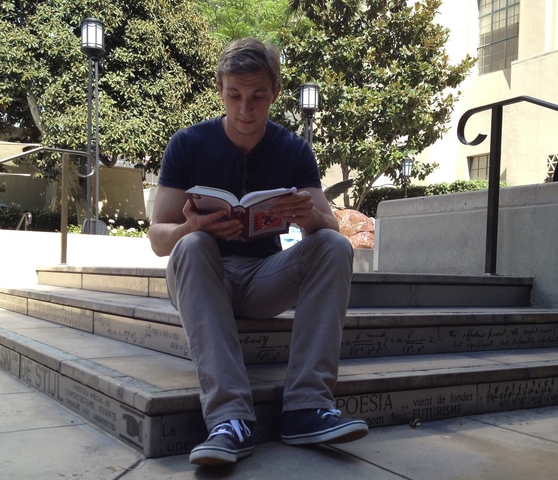 Florian is professor of American Studies at the University of Duisburg-Essen. He received his PhD in North American literatures from the University of Konstanz and also taught at the Obama Institute for Transnational American Studies at Johannes Gutenberg University Mainz. Florian is interested in North American literatures, both from the colonial period and the nineteenth century, but his main focus is on popular media, especially periodicals and theme parks. It is via popular media (and collaborations with fellow Imagines member Filippo Carlà-Uhink) that he has come into contact with classical reception, for example in joint publications such as “The Labyrinthine Ways of Myth Reception: Cretan Myths in Theme Parks” (2015), “Ancient Greek Culture and Myth in the Terra Mítica Theme Park” (2015), or “(Not so) Dangerous Journeys: The Ancient Mediterranean and Ancient Mythological Sea Travelers in European Theme Park Attractions” (2018). Florian is looking forward to engaging with classical reception in American beefcake magazines. Together with fellow Imagines member Marta García Morcillo, he is working on a project about print advertisements in American literary magazines in the future. They have both organised the interdisciplinary workshop "Multimodal Landscapes of Mediterranean Antiquity" (25-27 April 2024), which explored modern imageries of ancient pasts in the city of Essen.
Florian is professor of American Studies at the University of Duisburg-Essen. He received his PhD in North American literatures from the University of Konstanz and also taught at the Obama Institute for Transnational American Studies at Johannes Gutenberg University Mainz. Florian is interested in North American literatures, both from the colonial period and the nineteenth century, but his main focus is on popular media, especially periodicals and theme parks. It is via popular media (and collaborations with fellow Imagines member Filippo Carlà-Uhink) that he has come into contact with classical reception, for example in joint publications such as “The Labyrinthine Ways of Myth Reception: Cretan Myths in Theme Parks” (2015), “Ancient Greek Culture and Myth in the Terra Mítica Theme Park” (2015), or “(Not so) Dangerous Journeys: The Ancient Mediterranean and Ancient Mythological Sea Travelers in European Theme Park Attractions” (2018). Florian is looking forward to engaging with classical reception in American beefcake magazines. Together with fellow Imagines member Marta García Morcillo, he is working on a project about print advertisements in American literary magazines in the future. They have both organised the interdisciplinary workshop "Multimodal Landscapes of Mediterranean Antiquity" (25-27 April 2024), which explored modern imageries of ancient pasts in the city of Essen.
Contact: This email address is being protected from spambots. You need JavaScript enabled to view it.
Dr Marta García Morcillo
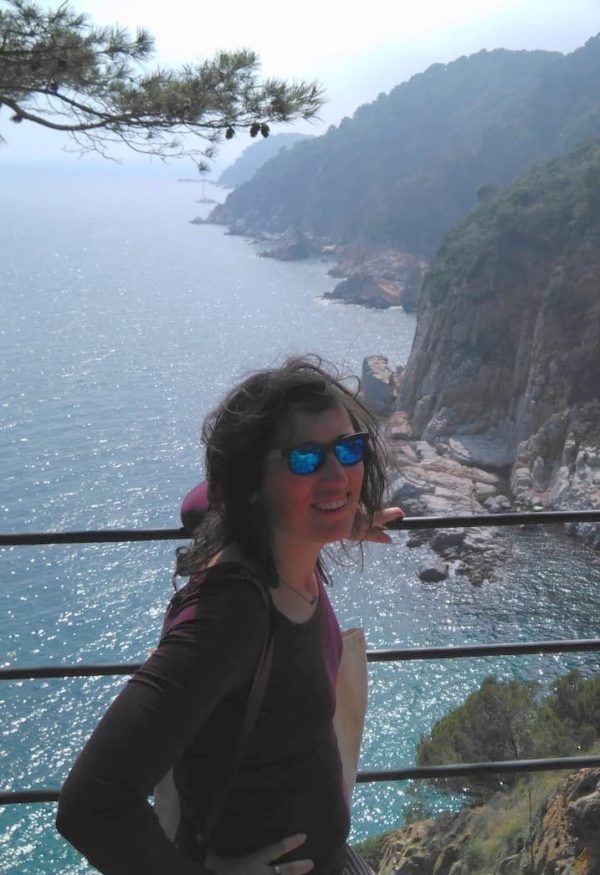 Marta is Ancient Historian and Lecturer at Newcastle University. She held previous research and lectureship positions at the Universities of Essen, Turin, Durham, Roehampton (London), Heidelberg, Lampeter and Dresden. Her specialisation is Roman economic and social history, as well as the uses of Antiquity in the modern arts and media, with special emphasis on cinema and advertising in the 19th and 20th centuries. Her work on printed advertising includes a historical insight into the Liebig Trading Cards. She has also written several contributions on ancient Carthage and Carthaginian women in modern imagination. Marta is cofounder of Imagines and member of the project ANIHO, which deals with the influence of Antiquity in modern nationalisms and national identities. Her publications include the co-edition of the first Imagines volume (2008), Hellas on Screen (2008) (with I. Berti); Seduction and Power (2013); Imagining Ancient Cities in Film (2015). Along with F. Carlà and C. Walde, she has also co-edited an issue for the journal thersites devoted to Advertising Antiquity (2017). Together with Imagines' member Florian Freitag, she has organised the interdisciplinary workshop "Multimodal Landscapes of Mediterranean Antiquity" (25-27 April 2024), which explored modern imageries of ancient pasts in the city of Essen. She is currently working on a project about advertising inspired by the ancient world in early 20th century American magazines.
Marta is Ancient Historian and Lecturer at Newcastle University. She held previous research and lectureship positions at the Universities of Essen, Turin, Durham, Roehampton (London), Heidelberg, Lampeter and Dresden. Her specialisation is Roman economic and social history, as well as the uses of Antiquity in the modern arts and media, with special emphasis on cinema and advertising in the 19th and 20th centuries. Her work on printed advertising includes a historical insight into the Liebig Trading Cards. She has also written several contributions on ancient Carthage and Carthaginian women in modern imagination. Marta is cofounder of Imagines and member of the project ANIHO, which deals with the influence of Antiquity in modern nationalisms and national identities. Her publications include the co-edition of the first Imagines volume (2008), Hellas on Screen (2008) (with I. Berti); Seduction and Power (2013); Imagining Ancient Cities in Film (2015). Along with F. Carlà and C. Walde, she has also co-edited an issue for the journal thersites devoted to Advertising Antiquity (2017). Together with Imagines' member Florian Freitag, she has organised the interdisciplinary workshop "Multimodal Landscapes of Mediterranean Antiquity" (25-27 April 2024), which explored modern imageries of ancient pasts in the city of Essen. She is currently working on a project about advertising inspired by the ancient world in early 20th century American magazines.
Contact: This email address is being protected from spambots. You need JavaScript enabled to view it., This email address is being protected from spambots. You need JavaScript enabled to view it.
Prof. Adeline Grand-Clément
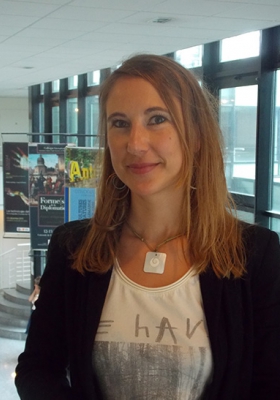 Adeline is Full Professor in Greek History at the Université de Toulouse 2-Jean Jaurès, as well member of the research group PH-ERASME (EA4601) and co-editor of the journal Anabases. Her research revolves around cultural and social history of the Archaic Greek world. She is particularly interested in the anthropology and history of colours, in sensory studies, in enviromenta humanities and in Classical Receptions in 19th century Europe. Her publications include the monographs La fabrique des couleurs. Histoire du paysage sensible des Grecs anciens (VIIIe-début du Ve s. av. n. è.), Paris, De Boccard, 2011,and Au plaisir des dieux. Expérience du sensible dans le rituels en Grèce ancienne, Toulouse, Anacharsis, 2023, as well as collective volumes such as Arcs-en-ciel et couleurs. Regards comparatifs, Paris, CNRS, 2018 (with Arnaud Dubois, Jean-Baptiste Eczet and Charlotte Ribeyrol); The Smells and Senses of Antiquity in the Modern Imagination (with Charlotte Ribeyrol), London, Bloomsbury, 2022.
Adeline is Full Professor in Greek History at the Université de Toulouse 2-Jean Jaurès, as well member of the research group PH-ERASME (EA4601) and co-editor of the journal Anabases. Her research revolves around cultural and social history of the Archaic Greek world. She is particularly interested in the anthropology and history of colours, in sensory studies, in enviromenta humanities and in Classical Receptions in 19th century Europe. Her publications include the monographs La fabrique des couleurs. Histoire du paysage sensible des Grecs anciens (VIIIe-début du Ve s. av. n. è.), Paris, De Boccard, 2011,and Au plaisir des dieux. Expérience du sensible dans le rituels en Grèce ancienne, Toulouse, Anacharsis, 2023, as well as collective volumes such as Arcs-en-ciel et couleurs. Regards comparatifs, Paris, CNRS, 2018 (with Arnaud Dubois, Jean-Baptiste Eczet and Charlotte Ribeyrol); The Smells and Senses of Antiquity in the Modern Imagination (with Charlotte Ribeyrol), London, Bloomsbury, 2022.
Contact: This email address is being protected from spambots. You need JavaScript enabled to view it.
Dr Martin Lindner
 Martin Lindner is Lecturer in Ancient History at the University of Göttingen, Germany, and also curator of the Sammlung Stern, a unique film archive of documentary and educational films. He specializes in imperial Roman history, cultural history and classical reception in modern popular culture. His PhD thesis, published in 2007 (Rom und seine Kaiser im Historienfilm, Frankfurt am Main), was devoted to the representation of Roman emperors in films and TV series. Martin has authored, edited and co-edited volumes on classical reception in documentaries (Drehbuch Geschichte, 2005), on nationalistic classical traditions (Nationalismus und Antikenrezeption, 2009), on contemporary reception studies (Antikenrezeption 2013 n. Chr., 2013), on neo-mythological narratives (Classical Heroes in the 21st Century, 2023), and on reception as a creative process (Playful Classics, 2024). In addition, he is co-editor of the book series Rezeption der Antike (Herder / WBG) and Imagines (Bloomsbury). Martin has written over 50 book chapters and essays on classical reception, ranging from films, comics and novels to games, re-enactment and heavy metal music. His current projects deal with the development of scientific thinking, with memetic transmission, and with classical reception in the Discworld novels by Terry Pratchett.
Martin Lindner is Lecturer in Ancient History at the University of Göttingen, Germany, and also curator of the Sammlung Stern, a unique film archive of documentary and educational films. He specializes in imperial Roman history, cultural history and classical reception in modern popular culture. His PhD thesis, published in 2007 (Rom und seine Kaiser im Historienfilm, Frankfurt am Main), was devoted to the representation of Roman emperors in films and TV series. Martin has authored, edited and co-edited volumes on classical reception in documentaries (Drehbuch Geschichte, 2005), on nationalistic classical traditions (Nationalismus und Antikenrezeption, 2009), on contemporary reception studies (Antikenrezeption 2013 n. Chr., 2013), on neo-mythological narratives (Classical Heroes in the 21st Century, 2023), and on reception as a creative process (Playful Classics, 2024). In addition, he is co-editor of the book series Rezeption der Antike (Herder / WBG) and Imagines (Bloomsbury). Martin has written over 50 book chapters and essays on classical reception, ranging from films, comics and novels to games, re-enactment and heavy metal music. His current projects deal with the development of scientific thinking, with memetic transmission, and with classical reception in the Discworld novels by Terry Pratchett.
Contact: This email address is being protected from spambots. You need JavaScript enabled to view it.
Dr Charlotte Ribeyrol
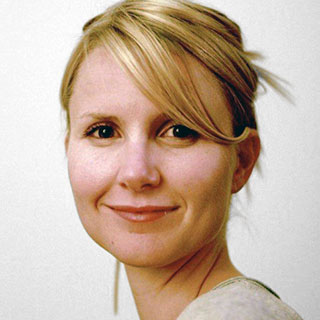 Charlotte Ribeyrol is Associate Professor in 19th century British Literature at the University of Paris-Sorbonne and Marie Sklodowska Curie Junior Research Fellow at Trinity College, Oxford (2016-18). In 2015 she was elected a junior member of the Institut Universitaire de France. Her main research focuses on Hellenism in Victorian poetry and painting, which was the subject of her first monograph: Étrangeté, passion, couleur », L’hellénisme de Swinburne, Pater et Symonds (1865-1880) (ELLUG, Grenoble, 2013). She is currently working on the cultural history of colour and chromatic materialities in 19th century art and literature. The outcomes of this research led to several publications, among them the volume The Colours of the Past in Victorian England (Peter Lang, Oxford, 2016). Further works include Antique bodies in Nineteenth-Century British Literature and Culture. (ed. with C. Bertonèche) Miranda, n°11, 2015; Late Victorian Paganism. (ed. with C. Murray) Cahiers Victoriens et Edouardiens, 2015; « Étrangeté, passion, couleur », L’hellénisme de Swinburne, Pater et Symonds (1865-1880). Grenoble, ELLUG, 2013; Inventer la peinture grecque antique. (ed. with S. Alexandre and N. Philippe) Lyon, ENS-Éditions, 2012.
Charlotte Ribeyrol is Associate Professor in 19th century British Literature at the University of Paris-Sorbonne and Marie Sklodowska Curie Junior Research Fellow at Trinity College, Oxford (2016-18). In 2015 she was elected a junior member of the Institut Universitaire de France. Her main research focuses on Hellenism in Victorian poetry and painting, which was the subject of her first monograph: Étrangeté, passion, couleur », L’hellénisme de Swinburne, Pater et Symonds (1865-1880) (ELLUG, Grenoble, 2013). She is currently working on the cultural history of colour and chromatic materialities in 19th century art and literature. The outcomes of this research led to several publications, among them the volume The Colours of the Past in Victorian England (Peter Lang, Oxford, 2016). Further works include Antique bodies in Nineteenth-Century British Literature and Culture. (ed. with C. Bertonèche) Miranda, n°11, 2015; Late Victorian Paganism. (ed. with C. Murray) Cahiers Victoriens et Edouardiens, 2015; « Étrangeté, passion, couleur », L’hellénisme de Swinburne, Pater et Symonds (1865-1880). Grenoble, ELLUG, 2013; Inventer la peinture grecque antique. (ed. with S. Alexandre and N. Philippe) Lyon, ENS-Éditions, 2012.
Contact: This email address is being protected from spambots. You need JavaScript enabled to view it.
Dr Rosario Rovira Guardiola
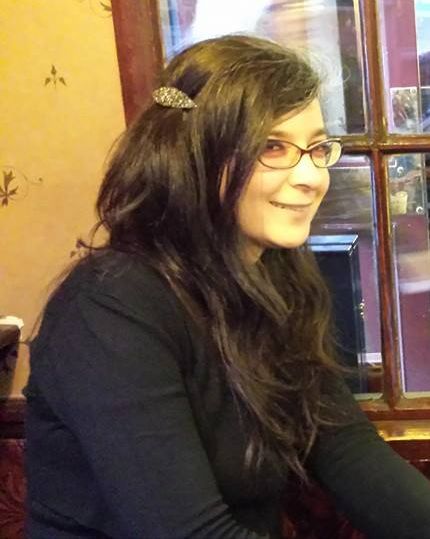 Rosario Rovira Guardiola is an Ancient Historian and Archaeologist who works at the Institute of Classical Studies, University of London, UK. She worked previously at the British Museum and was project curator for the exhibition Hadrian: Empire and Conflict and is now part of the project Pantanello: Unearthing the History of Hadrian’s Villa. Rosario is specialised in ancient trade and in the Reception of Antiquity in modern art and literature. She is the author of Museums and Literature: Marguerite Yourcenar’s Mémoires d’Hadrien, in P. Castillo et al. (eds.), Imagines, La Rioja 2008; The spell of Antinous in Renaissance Art: the Jonah statue in Santa Maria del Popolo, in S. Knippschild and M. Garcia Morcillo (eds), Seduction and Power: Antiquity in the Visual and Performing Arts (Bloomsbury 2013); Reimagining Classical antiquity: Chateaubriand in Greece, in E. Calandra and B. Adembri (eds.), Adriano e la Grecia: Villa Adriana tra Classicità ed Ellenismo (Electa 2014); “It is like Soho, Only Bigger”: Doctor Who and Modern Interpretations of Pompeii, in M. García Morcillo et al. (eds.), Imagining Ancient Cities in Film (Routledge 2015). She is also the editor of the 4th Imagines volume: Ancient Mediterranean Sea in Modern Visual and Performing Arts: Sailing in Troubled Waters (Bloomsbury 2017).
Rosario Rovira Guardiola is an Ancient Historian and Archaeologist who works at the Institute of Classical Studies, University of London, UK. She worked previously at the British Museum and was project curator for the exhibition Hadrian: Empire and Conflict and is now part of the project Pantanello: Unearthing the History of Hadrian’s Villa. Rosario is specialised in ancient trade and in the Reception of Antiquity in modern art and literature. She is the author of Museums and Literature: Marguerite Yourcenar’s Mémoires d’Hadrien, in P. Castillo et al. (eds.), Imagines, La Rioja 2008; The spell of Antinous in Renaissance Art: the Jonah statue in Santa Maria del Popolo, in S. Knippschild and M. Garcia Morcillo (eds), Seduction and Power: Antiquity in the Visual and Performing Arts (Bloomsbury 2013); Reimagining Classical antiquity: Chateaubriand in Greece, in E. Calandra and B. Adembri (eds.), Adriano e la Grecia: Villa Adriana tra Classicità ed Ellenismo (Electa 2014); “It is like Soho, Only Bigger”: Doctor Who and Modern Interpretations of Pompeii, in M. García Morcillo et al. (eds.), Imagining Ancient Cities in Film (Routledge 2015). She is also the editor of the 4th Imagines volume: Ancient Mediterranean Sea in Modern Visual and Performing Arts: Sailing in Troubled Waters (Bloomsbury 2017).
Contact: This email address is being protected from spambots. You need JavaScript enabled to view it.
Dr Luis Unceta Gómez
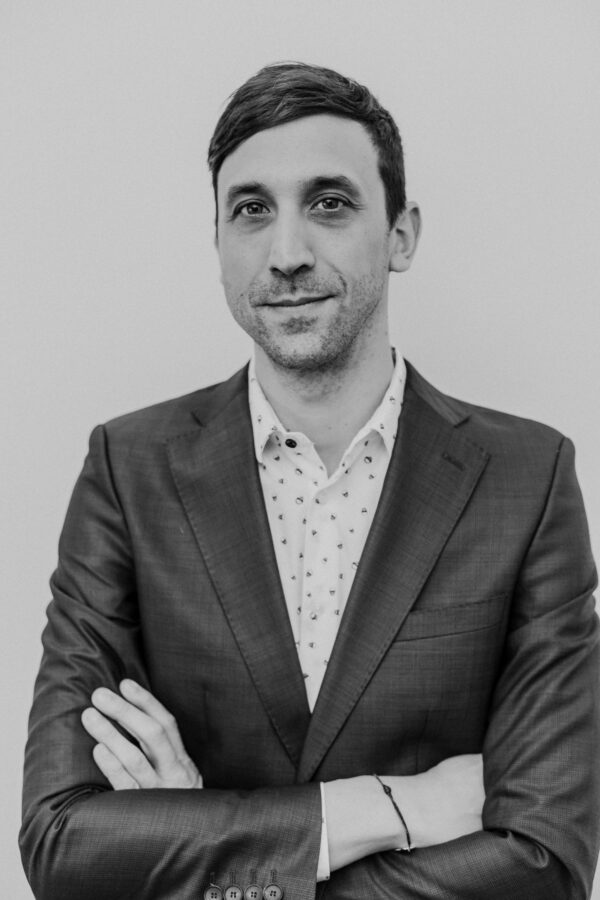 Luis Unceta Gómez is lecturer in Latin Philology at the Universidad Autónoma de Madrid (Spain). Currently, he leads the research project Marginalia Classica, dealing with the Reception of Antiquity in contemporary mass culture. He specializes in Latin Pragmatics and linguistic Politeness, and also in Classical Reception in popular culture, especially in comics, cinema, and speculative fiction. His recent publications include the edited volumes Classical Reception. New Challenges in a Changing World (with Anastasia Bakogianni, De Gruyter, 2024, See book trailer here); Playful Classics. Classical Reception as a Creative Process (with Martin Lindner and Juliette Harrisson, Bloomsbury, Imagines Series, 2024); Clasicismo e identidades contemporáneas. Recepciones clásicas en la cultura de masas (with Cristina Salcedo González, Catarata, 2024). Together with F. Carlà-Uhink, he organised the eighth international Imagines conference, Pagan Pornotopias (Madrid 2023).
Luis Unceta Gómez is lecturer in Latin Philology at the Universidad Autónoma de Madrid (Spain). Currently, he leads the research project Marginalia Classica, dealing with the Reception of Antiquity in contemporary mass culture. He specializes in Latin Pragmatics and linguistic Politeness, and also in Classical Reception in popular culture, especially in comics, cinema, and speculative fiction. His recent publications include the edited volumes Classical Reception. New Challenges in a Changing World (with Anastasia Bakogianni, De Gruyter, 2024, See book trailer here); Playful Classics. Classical Reception as a Creative Process (with Martin Lindner and Juliette Harrisson, Bloomsbury, Imagines Series, 2024); Clasicismo e identidades contemporáneas. Recepciones clásicas en la cultura de masas (with Cristina Salcedo González, Catarata, 2024). Together with F. Carlà-Uhink, he organised the eighth international Imagines conference, Pagan Pornotopias (Madrid 2023).
Contact: This email address is being protected from spambots. You need JavaScript enabled to view it.
Dr Anja Wieber
 Anja Wieber is an independent scholar and secondary teacher for Latin and History at the Westfalen-Kolleg (Dortmund). Formerly she was a lecturer in Ancient History at the Universities of Bochum and Essen and a member of the research group Forschungen zur antiken Sklaverei (Akademie der Wissenschaften und Literatur Mainz) until the end of the project in 2017. As well as her expertise in the gender history of Antiquity she specialises in classical reception in all filmic genres and its media didactics, a field in which she has been writing some basic articles since the late 1990s (e.g. Film, in: Der Neue Pauly. Enzyklopädie der Antike. Rezeptions- und Wissenschaftsgeschichte, 13 (1999), 1133-1141). Besides this, she is studying all forms of reception concerning the Palmyrene Queen Zenobia, and recently also classics in advertising.
Anja Wieber is an independent scholar and secondary teacher for Latin and History at the Westfalen-Kolleg (Dortmund). Formerly she was a lecturer in Ancient History at the Universities of Bochum and Essen and a member of the research group Forschungen zur antiken Sklaverei (Akademie der Wissenschaften und Literatur Mainz) until the end of the project in 2017. As well as her expertise in the gender history of Antiquity she specialises in classical reception in all filmic genres and its media didactics, a field in which she has been writing some basic articles since the late 1990s (e.g. Film, in: Der Neue Pauly. Enzyklopädie der Antike. Rezeptions- und Wissenschaftsgeschichte, 13 (1999), 1133-1141). Besides this, she is studying all forms of reception concerning the Palmyrene Queen Zenobia, and recently also classics in advertising.
Among her numerous articles are contributions to books by members of the Imagines project (Drehbuch Geschichte, 2005, Hellas on Screen, 2008; Ancient Magic and the Supernatural in the Modern Visual and Performing Arts, 2015), to companions (-, 15. Non-western approaches to the ancient world: India and Japan – Classical heritage or exotic Occidentalism?, in: Arthur J. Pomeroy (ed.), A companion to Ancient Greece and Rome on the Screen, Malden 2017, 329-348; Roman empresses on Screen. An epic failure?, in: Elizabeth D. Carney / Sabine Müller (ed.), The Routledge Companion to Women and Monarchy in the Ancient Mediterranean World, London / New York 2021, 504-516) and to different numbers of the journal thersites. In 2020 she co-edited with Filippo-Carlà Uhink (University of Potsdam) Orientalism and the Reception of Powerful Women from the Ancient World.
Contact: This email address is being protected from spambots. You need JavaScript enabled to view it.
Visit the website Bewegte Antike to find out more about her projects, publications and initiatives.

